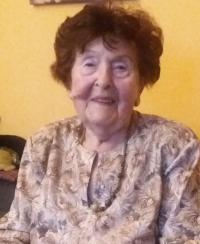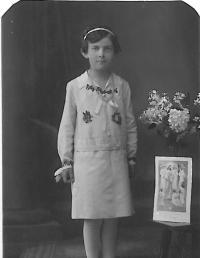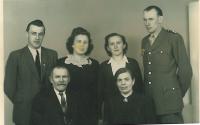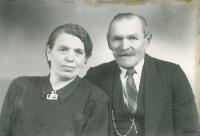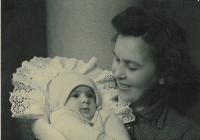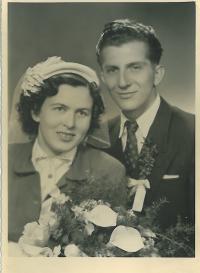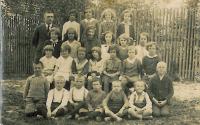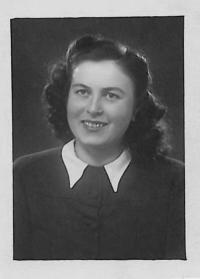Don’t lose hope, and trust that things will be better

Download image
Marie Hučíková, née Klesová, was born on 13 September 1924 in Kucíny, in what was then Přeštice District, to Marie and František Kles. She had three siblings - Jarmila, Josef, and Václav. She attended elementary school in Kucíny and then had three years of town school (upper primary school) in Přeštice. She trained as a seamstress. From February 1944 she was assigned to forced labour in Germany, in the town of Lengenfeld, where she repaired aircraft components. At the end of 1944 she was transferred to Semily, from which she fled in April 1945 with nine other people. She and one friend finally returned safely to their families. She thus witnessed the end of the war with her parents in Kucíny. At the invitation of her father’s friend, who was the national administrator of a factory, the family moved to Nýrsko, where Marie worked for eight years at Okula, a glasses factory. She married in 1953. She and her husband Arnošt Hučík met in Nýrsko, where he was doing military service. He was from Karlovy Vary, and the couple later moved to his home city. hey had a single daughter, Alena. They divorced after eight years. Marie Hučíková was employed at Hotel Imperial in Karlovy Vary for twenty-five years. She retired in 1980. She still lives in Karlovy Vary.
